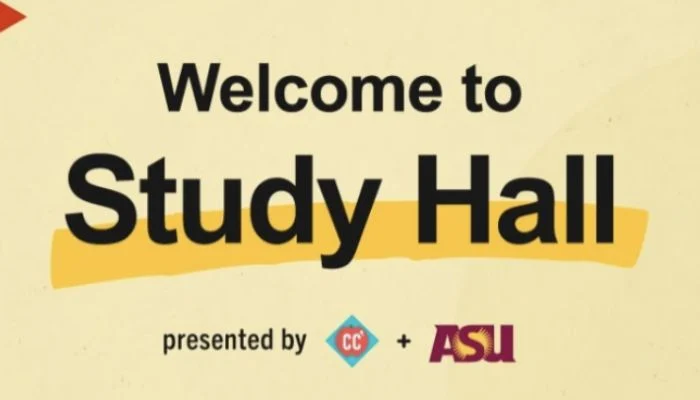YouTube, Arizona State University, and Crash Course, the well-known YouTube channel of writers and brothers Hank and John Green, have announced an astonishing expansion of their accessible education programme Study Hall.
According to YouTube’s announcement, the partnership is “a new approach that demystifies the college process while creating an affordable and accessible onramp to earning college credit,” outlining the chance for online learners to pursue transferable course credits with fewer restrictions than traditional college programmes.
In addition to being able to watch all Study Hall videos for free on YouTube, users can register for related courses developed by Crash Course and academics at Arizona State University in order to receive credits and compile a transcript.
Beginning on March 7, 2023, the current lineup of four “College Foundations” courses will address postsecondary fundamentals including English composition, college math, American history, and interpersonal communication. Each course costs $25 to enrol in, plus an additional $400 registration fee to acquire credits. Prior to March 7, 2023, each course will cost $350 to enrol in.
When Study Hall is fully operational, the number of credits available will equal the whole first year of study at most institutions and the cost is “less than one-third of the typical course cost at a public four-year university,” according to YouTube.
Enrollment does not require a minimum GPA or even an application, and students are allowed to retake classes as many times as they need to. Any eligible student who wants to use their Study Hall experience toward a degree can apply for admission to Arizona State University through the Earned Admissions program or transfer to any school in the US that accepts ASU credits.
According to Katie Kurtz, head of learning at YouTube, the company wants to serve as a middleman between the general public and higher education.
“At YouTube, we want to empower learners to go further by breaking down barriers to high-impact learning experiences. Postsecondary education is still one of the best drivers of economic and social mobility, yet the path to higher education has too many barriers,” she explained.
“We want to help address this urgent challenge by tapping into our endlessly creative and passionate learning creator community. With 10 years of experience delivering compelling and engaging educational content, we knew Crash Course, paired with ASU’s world class faculty would be a dynamic partnership to address this challenge.”
The Green brothers, well-known for being early, influential creators on both YouTube and Tumblr, launched the Crash Course channel in 2012. The channel has produced a decade’s worth of educational material on a variety of topics linked to early college and Advanced Placement high school courses, including psychology, world history, and even intellectual property law. The Green brothers’ quick and easy educational videos have an even wider audience now that they are both regulars on the TikTok For You Page.
Hank Green discussed his most recent educational endeavour, writing, in a tweet: “Around 43 million Americans are saddled with 1.75 trillion dollars in student debt. This may sound bad, but it’s worse than it seems: 40% of those 43 million people do not have degrees and will not pursue them.”
The biggest obstacles to getting degrees in the hands of students, according to Green and his production firm, Complexly, included fees, the complexity of college admissions systems, and the difficulty of many college courses for people who didn’t acquire a thorough high school education. “With some funding and a lot of hard work, we started to build ‘Study Hall’ with the goal that it helps lower these barriers.”
Along with the new course options, Study Hall also offers educational material on comprehending and navigating the higher education landscape, including a Crash Course series on “How To College” and quick primers to popular ideas and subject areas, hosted by Green and other academics.
By January 2025, the programme is expected to have 12 courses accessible. On the Study Hall website, prospective students can sign up.


 Latest News3 days ago
Latest News3 days ago
 Latest News3 days ago
Latest News3 days ago
 Entertainment3 days ago
Entertainment3 days ago
 Latest News3 days ago
Latest News3 days ago
 Latest News3 days ago
Latest News3 days ago
 Latest News3 days ago
Latest News3 days ago
 Latest News3 days ago
Latest News3 days ago
 Latest News3 days ago
Latest News3 days ago
























